WMDCPT Training
Delivering national security-related courses and training workshops worldwide
PNNL delivers national security-related courses and training workshops around the world. However, in today’s environment PNNL recognizes the necessity to focus on a blended approach to learning that incorporates one or any combination of engagement types including in-person, remote, and eLearning.
Full courses, specific modules, comprehensive practicums, and exercises (or combinations thereof) can be made available for international and domestic partners. Because the remote learning landscape is different for each partner, PNNL prioritizes the best fit solutions to meet each individual engagement.
WMD Interdiction/Border Security (aka RADACAD)
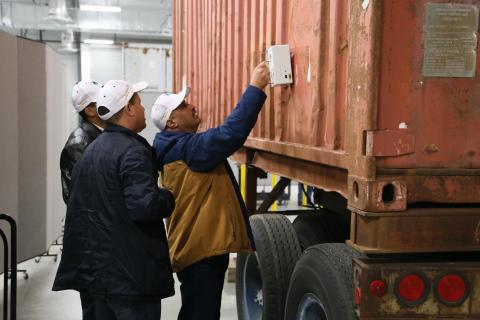
These training courses are typically five-day events with international participants, and held at the HAMMER Training Facility in Richland, Washington. The ideal class size is 24, but can range from 10-30. The course focuses on the identification and interdiction of controlled materials, commodities, technologies, and components used in WMD development, deployment, and delivery. The training includes classroom and field exercises on chemical, biological, radiological, and nuclear WMD and the missile delivery systems. It covers the basics of radiation detection, handling and transportation of radioactive materials, and human health effects associated with radiological exposure. These courses can be condensed into four-day agendas or expanded to include a train-the-trainer instructor development process.
In-country WMD Interdiction/Border Security
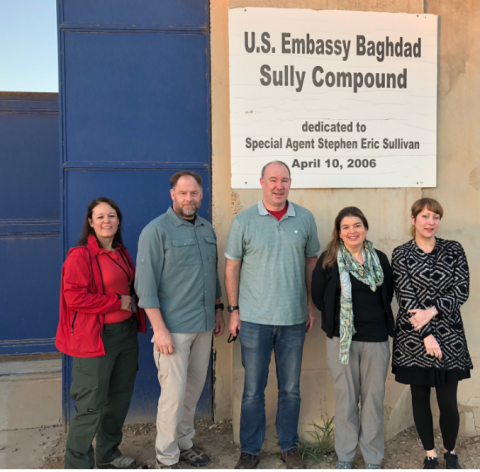
Activities in these courses include WMD interdiction training for land border, seaport, and airport environments. These trainings are conducted in-country at various venues appropriate to the training, including border checkpoints, customs facilities, or training venues. Topics are tailored to regional needs/threats, such as:
- Interdiction and smuggling techniques
- Search and inspection techniques
- Human tracking/counter-smuggling
- Targeting and screening of shipments
- Behavioral analysis and interview techniques
- Checkpoint setup
Low-Tech Threats to Transportation
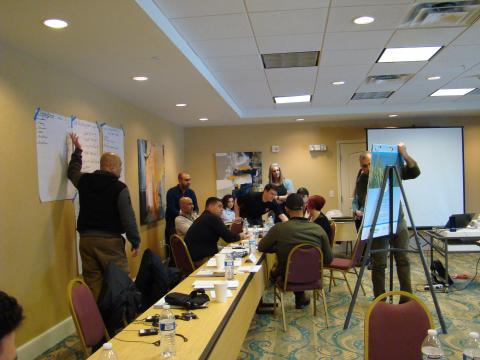
Designed for specific partner countries, this 3-5 day course addresses the improvised chemical, biological, and explosive weapons that threaten various modes of transportation. The course familiarizes participants with items that could be used to carry out low-tech attacks on public transportation. Target audiences are civil aviation and ground transport security officials, border security officials, police, and policy makers who are charged with addressing this threat. The course includes lectures, group activities, and hands-on practical exercises.
Man-portable Air Defense Systems (MANPADS) Awareness
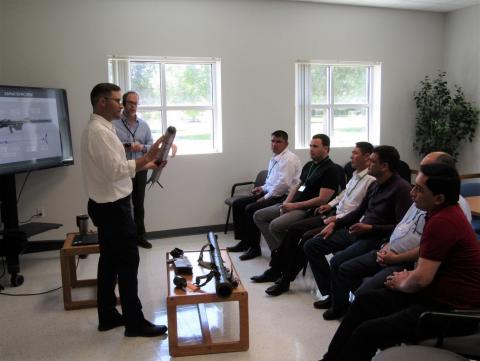
This is a 4-8 hour block of instruction specifically addressing the MANPADS and Anti-Tank Guided Missile threat worldwide. The intent is to familiarize partner countries with the threat, and how best to counter the threat through reporting and interdiction operations. This course is designed to supplement other training courses/activities within the WMD Counterproliferation Program.
Mobile Interdiction Training
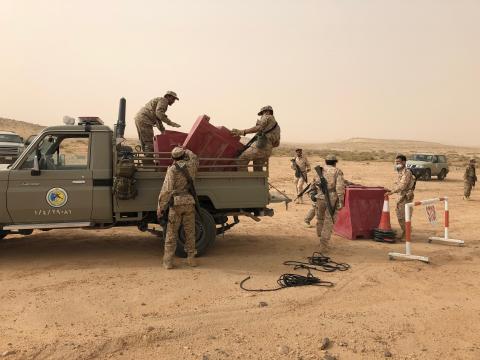
This is a five-day course designed to work with border guards to establish and organize mobile interdiction teams, demonstrate mission planning, and assist in their development of Standard Operating Procedures for conducting interdiction operations. This course will empower the border guard to increase their internal capacity for securing their border and preventing the smuggling of conventional weapons and the proliferation of WMD-sensitive goods through their country.
Ground Surveillance
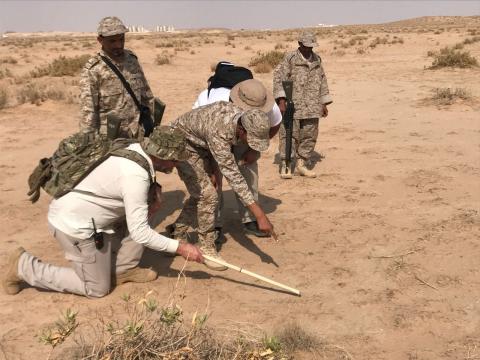
This course is constructed from the objective of frontline counter-smuggling at green borders, based upon international best practices, Standard Operating Procedures, and scenario-based training. This course has several options for implementation, including a core one-week course and additional options which include equipment training and demonstrations. PNNL works directly with the participants to develop strategies for ensuring continuity and sustainability.
Unmanned Aerial Systems

This is a three-day course designed to help partners draft a roadmap to counter the threats from unmanned aerial systems (UAS) and unmanned aerial vehicles (UAV). Whether as potential chemical, biological, or radiological delivery systems or more conventional weapons or explosives, UAS and UAVs are increasingly used by non-state actors to conduct terrorist attacks. The workshop focuses on identifying the level of awareness of this type of threat within a specific country’s security and civilian sectors and includes robust discussions among the participants to describe how to discover and investigate attempts to develop or deploy UAS and UAV, and ultimately how to mitigate those threats.
Counter Improvised Explosive Device (IED) Threat and Awareness Course
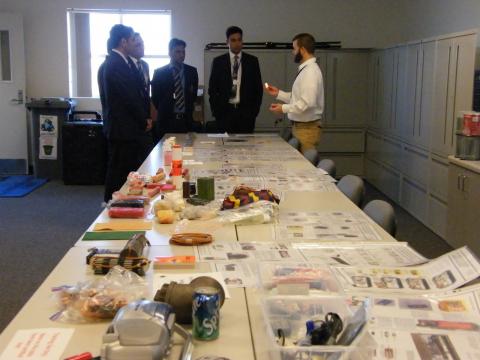
This is a five-day course focused on the recognition and understanding of IEDs. The course is tailored to specific threats faced by a particular audience or country. Topics include:
- IED components,
- Assembly structures,
- Placement techniques,
- Recognition and search techniques, and
- New IED threats.
Security Assessments and Training
This broad range of activities includes security inspections/assessments of specific facilities in partner countries against a postulated threat. Locations can be international airports, border security operations, seaport operations, and critical infrastructure (energy, water, transportation, communications). Duration of the assessments will vary widely dependent upon the defined scope, complexity of the facility/operation, team size, and urgency.
In some cases, the assessments reveal security gaps that can be addressed through training and workshop exchanges. This could include physical protection systems training, detection and assessment equipment familiarization, security effectiveness process training, and train-the-trainer instructor development courses.
Countering Aviation Security Ecosystem Threats (CASET)

CASET teaches an overview of five major threats to commercial aircraft and the aviation ecosystem. These threats are categorized as either high technology or low technology and can disrupt, disable, or destroy commercial aircraft and the infrastructure that supports their safe operation. CASET gives participants an introductory level understanding of these threats, how they are deployed, and steps that can be taken to identify and prioritize efforts to mitigate them.
The threats addressed in CASET are:
- Man-Portable Air Defense Systems and Anti-Tank Guided Missiles
- Low-Technology Materials and Tactics
- Unmanned Aerial Systems (Drones)
- Cyber Threats
- The Insider Threat